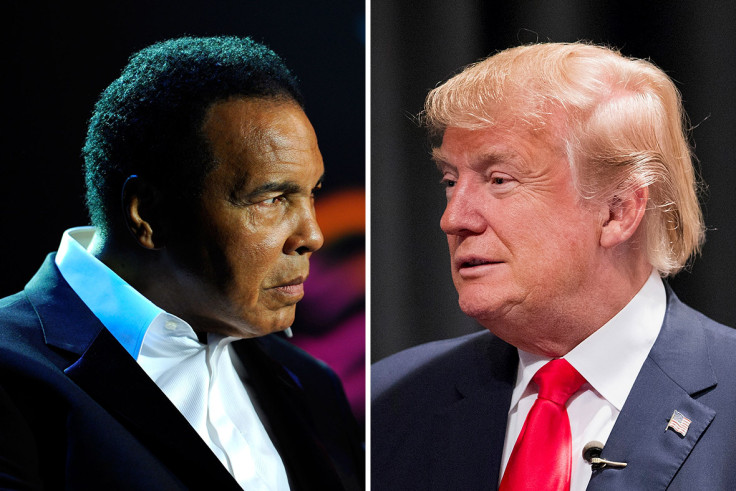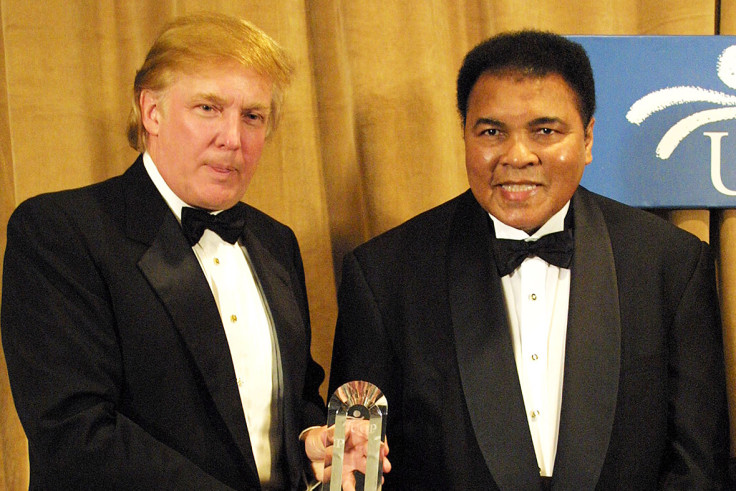Muhammad Ali: Boxing Champion hits back at Donald Trump over Muslim ban and Isis

Boxing icon Muhammad Ali has come out fighting against Republican presidential front-runner Donald Trump and his controversial call for a ban on the entry of all Muslims into the US.
Trump's comments have been widely condemned in the states from across the political spectrum with President Barrack Obama calling for unity in the wake of the 2 December San Bernardino shootings which left 21 dead and were inspired by Islamic State terrorism.
Ali, who became an outspoken advocate of the civil rights movement in the 1960s and 1970s and converted to Islam in 1975, also used his statement to speak out against the Islamic State (Isis/Daesh) and to say Islam had nothing to do with the attacks in Paris on 13 November.
In the statement broadcast on US television, Ali, 73, said: "Speaking as someone who has never been accused of political correctness, I believe that our political leaders should use their position to bring understanding about the religion of Islam and clarify that these misguided murderers have perverted people's views on what Islam really is.
"I am a Muslim, and there is nothing Islamic about killing innocent people in Paris, San Bernardino, or anywhere else in the world.

"True Muslims know that the ruthless violence of so-called Islamic jihadists goes against the very tenets of our religion," he added.
Trump also attracted criticism last week when he challenged Obama to name a Muslim sports star (implying there were none). Muhammad Ali was an obvious example of one such Muslim sports personality along with scores of others.
Ali, who has spent less time in the spotlight since he was diagnosed with Parkinson's disease in 1984, was previously a regular fixture on US television where he became a spokesperson for the Nation of Islam, a major force in the movement for black civil rights.
The boxing champion became a prisoner of conscience in 1971 when he refused to fight in Vietnam on religious grounds.
© Copyright IBTimes 2025. All rights reserved.





















